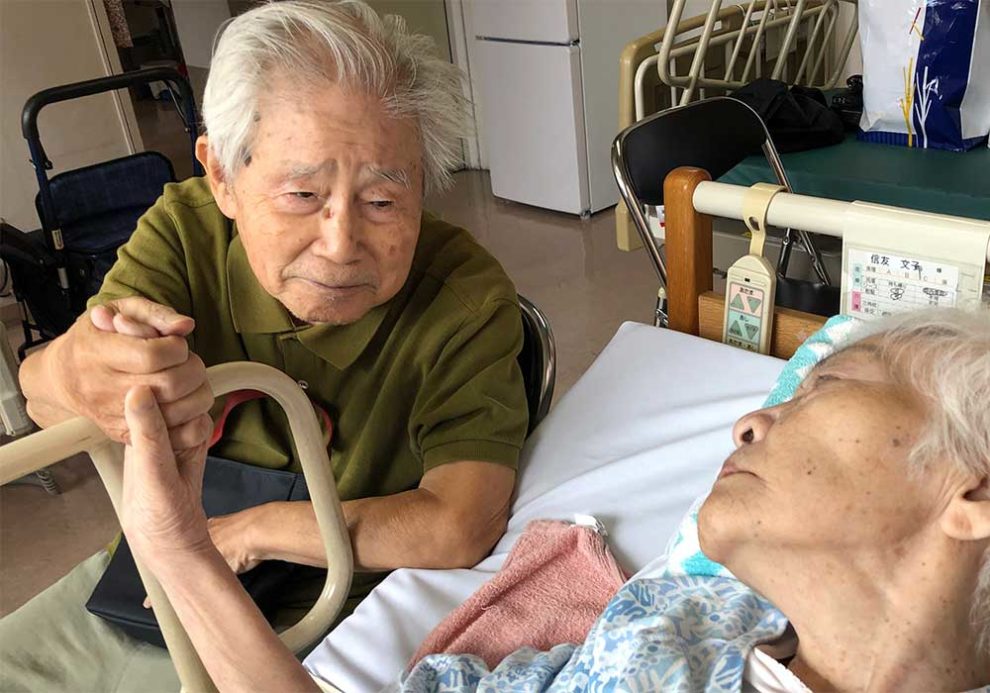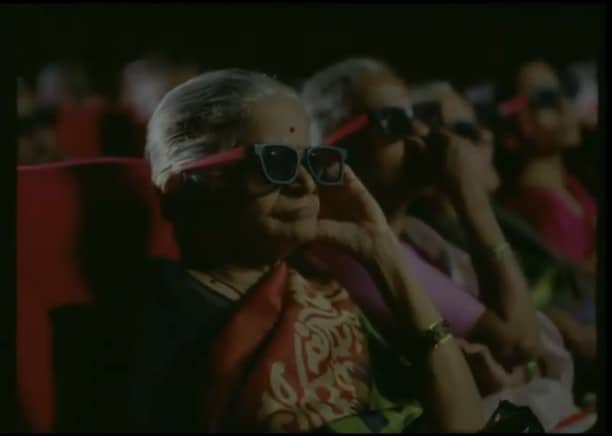“I Go Gaga: Welcome Home Mom” is the second full-length documentary by Naoko Nobutomo. A continuation of the surprising hit “I Go Gaga, My Dear”, it continues the diary-like documentation of director's nonagenarian mother, Fumiko, as she battles with Alzheimer's disease and her father, Yoshinori, doing everything he can to take care of his beloved wife in their home. The movie has its international premiere at Nippon Connection.
“I Go Gaga: Welcome Home Mom” is screening at Nippon Connection
The moment Yoshinori learns about his wife's failing health, he changes completely. Whereas he didn't touch anything in the house, apart from making his favorite coffee, in the past, now the nonagenarian learns how to shop, clean, and cook. Of course, the dishes he prepares for his beloved Fumiko are nothing like hers, nor is the house as tidy as it was before (it soon becomes filled with his favorite books and newspapers), but one can't but praise him for his incredible effort.
Where many elderly people would have acquiesced to sending their senile partner to a care facility, Yoshinori wants to live home with his wife for as long as they can. Even when Fumiko gets a stroke and is bedridden for months, he walks for more than an hour every single day to be with her and tell her to get better soon. The trip to the hospital is physically demanding for the almost century-old man, but he doesn't quit. Instead, he starts exercising, so he can become stronger when his wife comes back home.
During one of his visits, he brings Fumiko a poster of their daughter's debut documentary “I Go Gaga, My Dear.” She was really looking forward to it, Yoshinori tells the camera, speaking again about the levels of support within the family. The protagonist of the movie can't attend the screening in her hometown, but her husband can and does. He is received with ovations and becomes if not a minor celebrity, then at least a role model for elderly people around Japan.
Sadly, Fumiko's return home is postponed by another stroke, this time smaller, but equally dangerous for the frail old woman. There is a large chance that she will be bedridden forever, a doctor tells Yoshinori and Naoko. But the old men doesn't give up. He continues visiting his progressively more senile wife, encouraging her to get better soon, so they can drink coffee at their favorite spots at the kitchen table.
Yoshinori's wish for Fumiko to come back home is granted, but not the way he hoped for. Bedridden and seldom lucid, she must be brought to a caring facility, where she will probably stay until the end of her days. But, on the way there, she is briefly brought to their house. The moment the old woman is carried in, her face changes and she begins crying. She clearly remembers this place and probably feels like it is her last time visiting it. It is an emotionally powerful scene that can't but bring tears to one's eyes.
Fumiko might have changed hospitals, but almost everything in Yoshinori's day-to-day activities stays the same. He visits his wife every day, telling her to get better soon, even when she is forced to eat through a tube. Even a hernia operation, the first in his life, can't stop the old man from doing what he lives for, being with his family.
But then, 2020 comes and Yoshinori is forbidden from visiting his wife. We see the result of this on their health almost immediately. He gets visibly weaker and thinner, his mood, darker. It is like he has lost his reason for living, he just sits at the kitchen table, looking nowhere in particular. Things are much worse for Fumiko, too. She gets a pneumonia and things look grim. Then Naoko visits the hospital, and almost magically, the old woman gets better. Eventually, Fumiko passes away, but many months later, after Yoshinori, now much stronger again, has visited and spoken to her numerous times. She can't wait for him to turn hundred, but that's fine, he comforts her photograph, because he will be with her soon. He just needs to turn 120 first.
Shot with love in the span of numerous years and edited with utmost care, “I Go Gaga: Welcome Home Mom” is a touching documentation of the type of family love that preserves lives.


















